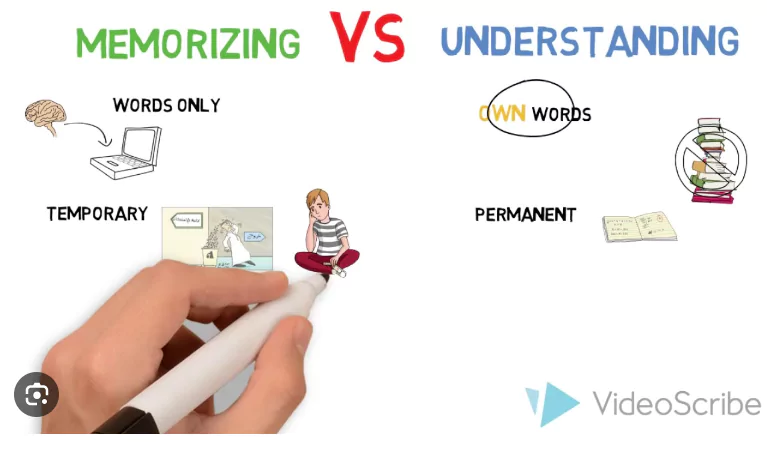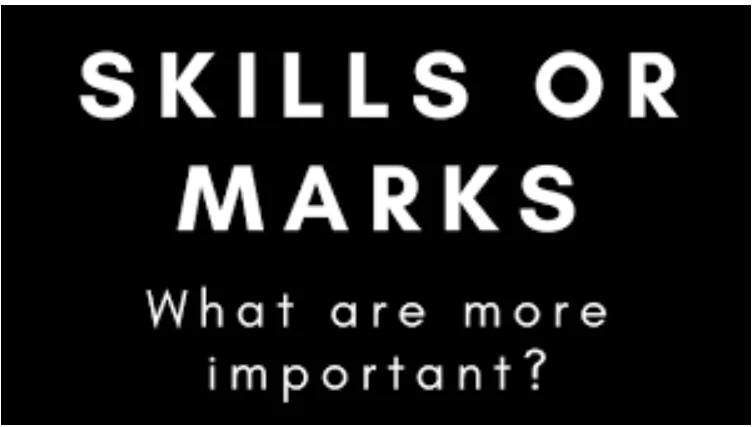In the world of education, grades have long been regarded as the best indicator of academic performance. High grades, according to many, are a sign of profound knowledge and understanding. However, there is more to this notion than meets the eye. In this blog article, we will explore whether good grades always mean a deep understanding of the material or if there is more to the story.

Ethan was a curious kid who grew up in a beautiful town surrounded by meadows and rolling hills. He always did really well in school and was always on the honor roll. But as he got older, he noticed that his grades needed to keep up with what he was actually learning. His primary sources of knowledge were memorization and taking tests, which meant he only got a rough idea of what he was studying.
The turning point came when his teacher asked him to write a research paper on a topic of his choice. He decided to write about the history of his hometown, hoping to uncover its untold stories. As he researched, he came to understand the limits of memory and the importance of context. Through the process, he discovered the rich and complex history of his town that connected him personally to its successes and failures.
Ethan’s discoveries transformed his approach to learning. He realized that true understanding isn’t just about grades, but also about being curious and passionate. Even though he was still excelling in school, he began to prioritize understanding the material better. His journey demonstrated how crucial it is to have knowledge in order to connect with people, build relationships, and make a difference in the world. His personal growth, from a student focused on grades to a learner driven by curiosity and passion, is a testament to the power of these qualities in learning.
The Traditional Perspective
Students who score well on exams are often praised for their academic performance. The conventional wisdom is that achieving good grades is linked to having a comprehensive understanding of the material. However, is this approach too simplistic? Does the fact that a student passes an exam simply mean that they have a good grasp of the material, or is it possible that passing is sometimes the result of superior memory and exam-taking techniques? These questions, which challenge the traditional perspective, arise in the context of the Marks–Knowledge Paradox, a concept that sheds light on the limitations of our current understanding of academic performance.
Recommended Reading: Generative AI vs Predictive AI: Which Technology is Shaping the Future?
The Paradox
This paradox illustrates the discrepancy between academic performance and knowledge. On the one hand, students with high grades demonstrate a lack of aptitude in applying their knowledge to practical situations, while those with lower grades demonstrate an extensive comprehension of the material. This raises the question of whether high grades always indicate a genuine understanding of the material.
What the Research Says
There is a solid case to be made against grades as the ultimate measure of proficiency. Studies have shown that high-achieving students often struggle to explain concepts they have been tested on standardized tests. These tests, which are often the foundation of grades, may not accurately measure a student’s aptitude for problem-solving in the real world. This phenomenon is referred to as the “marks-knowledge paradox,” and it raises questions about the reliability of grades as an indicator of real-world knowledge.
The Limits of Standardized Testing
Standardized tests heavily rely on rote memorization and quick, accurate responses. While these skills are valuable, they may need to encapsulate a profound understanding of a subject. Critics argue that such tests can stifle creativity and critical thinking, leaving students excelling in these areas at a disadvantage. Do high grades genuinely capture the depth of knowledge, or are they a measure of exam-specific skills?
Recommended Reading: No-Code AI: Building AI Solutions Without a Single Line of Code
Understanding vs. Memorization
In exploring the nature of this paradox, it is essential to distinguish between genuine comprehension and mere memorization. While students may be able to achieve high grades by simply memorizing information, they may need help to grasp the fundamental concepts. This raises doubts as to whether the educational system is capable of providing students with meaningful learning experiences. It is important to note that a perfect memory only sometimes translates into practical application in everyday life.

Implications for Teaching and Learning
We should urgently reconsider how we conduct education in light of the Marks-Knowledge Paradox. It implies that grades and knowledge should be separate from one another and advocates for a more thorough and impartial evaluation. Teaching comprehension rather than just test-taking techniques becomes essential. Prioritizing critical thinking, creative problem-solving, and practical application in the classroom is a good idea.
Recommended Reading: Best Co-Parenting Quotes
Real-World Application

Ethan’s story resurfaces here. The blog underscores the criticism of a grade-centric approach, emphasizing the potential disconnection between academic success and real-world application. Ethan excels in exams but struggles in practical scenarios. This sheds light on the limitations of a system prioritizing grades over holistic skill development.
Holistic Assessment
Addressing the Marks-Knowledge Paradox, a growing call for a holistic assessment emerges. This involves considering factors like class participation, project work, critical thinking, and practical application of knowledge. By broadening assessment criteria, educators can gain a more accurate understanding of a student’s overall proficiency and potential for success not just in the classroom, but also in the real world.
Conclusion
The moral of the story is that high grades don’t necessarily mean you know what you’re studying. Marks-Knowledge is a book that challenges the idea that grades are the only way to measure how well you know something. It asks us to think about how we measure learning and how we value it. As we navigate this complicated world of learning, let’s aim for a system that not only rewards success but also encourages a deep love of learning, fostering a positive learning environment for all students.
Want to make your child future-ready with Robotics? Moonpreneur offers a tailor-made program. Reserve a spot in our free 60-minute workshop today and introduce them to the amazing world of robotics and innovations!


























Adding examples of innovative grading systems, like competency-based assessments, will make it even more insightful.
It’s true that grades may not always represent knowledge, but the blog could benefit from mentioning specific studies or statistics on the connection between grades and real-world skills, as it would strengthen the argument.